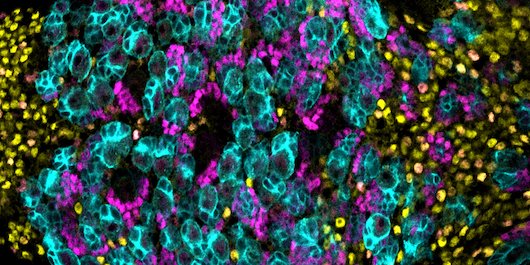NEURAL STEM CELL-NICHE INTERACTIONS IN MITOCHONDRIAL DISEASE
Mitochondrial dysfunction in one cell is well known to affect the behaviour of surrounding cells in many different contexts such as tumourigenesis and life-span regulation.
In previous work we found that neural stem cells and brain tumour cells rely on OxPhos to support proliferation. In addition, mitochondrial dysfunction limits the diversity of cell types they can generate, thus affecting normal development and maintenance of tumour stem cells (van den Ameele and Brand, 2019).
In contrast, glial cells are thought not to require mitochondrial metabolism. They support neurons and neural stem cells by secreting metabolites that fuel energy production. However, it is not known whether and how the metabolism of the glial niche changes upon mitochondrial dysfunction, whether glia can buffer the altered metabolic demands of mitochondrial disease and whether these non-cell-autonomous responses play a role in the tissue-specific clinical presentation.
We study whether cross-talk between cells with different metabolic demands (like glia and neural stem cells), may affect how the brain and how specific regions of the brain react to mitochondrial disease. Taking advantage of the powerful genetics of Drosophila, we combine targeted genetic manipulations with in vivo metabolite measurements to study how stem cells, neurons and glia interact and respond to cell-type specific mitochondrial dysfunction.
RELEVANT PUBLICATIONS
van den Ameele J & Brand AH (2019)


